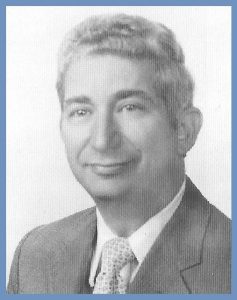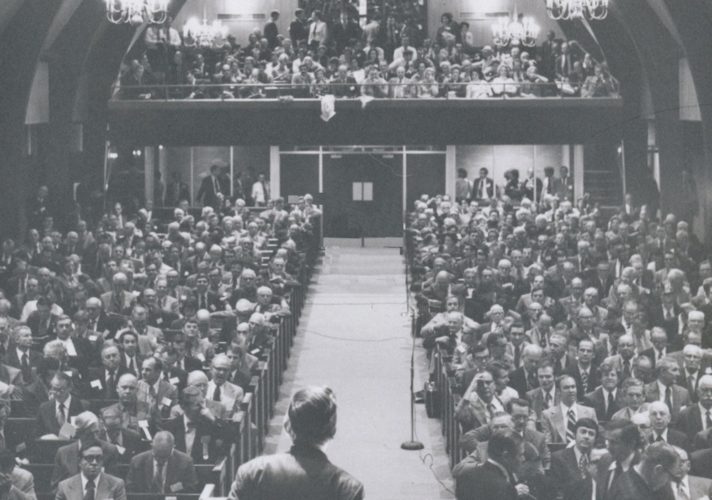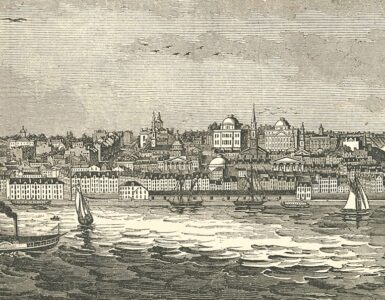In this year of the 50th General Assembly of the PCA it is good to remember some of the founders of the denomination. The following memorial was posted on this site when Paul Settle passed away five years ago and it expresses his concern for holding to the inerrant and infallible Word. This was originally posted March 20, 2018. Other than some copy editing, the text has not been changed other than the last few sentences of the last paragraph.

Remembering Paul Settle
It started in the Garden of Eden. The serpent was craftier than all the other creatures and he used his skills of deception and trickery when he asked Eve, “Yeah, hath God said?” That is, when God presented our first parents with the revelation of his will prohibiting their eating the fruit of the tree of the knowledge of good and evil, Satan subtly questioned the veracity of God’s revelation. As Solomon tells us, “There is nothing new under the sun.” Man, as male and female, has been questioning the truth of God’s revelation ever since. Whether it was Israel’s skepticism regarding Moses’s authority as the voice of the Lord; God using an astute donkey to speak to not so astute Baalam; or sending Jonah into the digestive system of a great fish to convince him that it would be a good idea to go and preach to Nineveh, “Yeah, hath God said?” has continued its doubting trail through the pages of the Bible and into church history. Challenges to the doctrines of inspiration, infallibility, inerrancy, and whether the Scripture is the very Word of God have both fused and fractured Christianity through its history. Paul G. Settle was one who found himself in the midst of a controversy which, he perceptively grasped, was simply the same thing all over again, “Yeah, hath God said?”
Rev. Settle’s years of ministry required many hats. His hat collection included—elder, husband, pastor, father, preacher, counsellor, broadcaster, writer, teacher, seminary professor, administrator, coordinator, moderator, apologist, shepherd, and editor. One publication he was influential in was Contact: Presbyterian Churchmen United, which ran 1970-1973; he was the editor wielding the blue pencil. In an article of just over eight-hundred words he clearly expressed the issue that was at the heart of the controversy among Presbyterians of the day that would lead some members to leave the denomination and form what would come to be named the Presbyterian Church in America (PCA) in 1973. The title was, “The Underlying Issue,” and apologist Settle, after an introductory paragraph simply takes readers back to those familiar words of Genesis 3, “Yeah, hath God said?”
Has God spoken? Has He caused His mind and will for the Church to be committed to writing? Do the words of the Bible—in their construction and combination with relevant words, clauses, sentences—represent God’s very own revelation to mankind?
Calvinist Settle then turned to his denominational secondary standards, the Westminster Confession of Faith as well as historically to pastor-teacher John Calvin to buttress his case.
There can be no doubt that the Westminster Confession of Faith gives a clear, affirmative answer to such questions. There can be no doubt, further, that the Bible’s own testimony to the Scriptures is that they, in their entirety (all 66 books), and in detail (all the words) are the very Word of God. As John Calvin says, “the Scriptures are the only records in which God has been pleased to consign His truth … The full authority which they ought to possess with the faithful is not recognized unless they are believed to have come from heaven, as directly as if God had been heard giving utterance to them.” (Institutes of the Christian Religion, book 1, chapter 7, section 1, i.e. most often cited thus, 1:7:1)
This is the view of the Bible which God’s people have firmly held since the beginning. And no wonder, since God’s people believe the Bible (Westminster Confession 16:2) and the Bible teaches that it is directly inspired by the Holy Spirit. This inspiration was such a superintendence of the Holy Spirit over the writers of the Scriptures, that their writings possess Divine authority and trustworthiness, and are therefore free from error.
After paragraphs addressing the situation within his church regarding the false views expressed in denominational publications of the PCUS and among denominational leaders, he came to conclude that:
We must be led by God alone. We can be assured that we are led by God only when our lives are ordered by the infallible standard of the Bible, the true Word of God. We trust only the living God, who speaks the truth.
When the General Assembly, synods, presbyteries, sessions, and individual churchmen begin to insist that their members and brethren take seriously the Biblical and Confessional view of Scripture, then the issue will be settled, and we will have a large measure of peace in the Church. But not until then. Peace will not be enjoyed until purity is secured. And purity cannot be had until all the life of the Church is shaped by the living Word of God—the Holy Scriptures.
So, “Yeah, hath God Said?” was at the heart of the issues of the day. Settle confronted the issues directly and recognized that the doctrine of Scripture was at its heart, but more importantly, he affirmed revealed religion saying, “Yeah, God hath said!”
The author of Presbyterians of the Past over the years had but a few brief conversations with Paul Settle. He was an endearing person and nearly all introduced to him quickly assessed him a kind and friendly man. In the first chapter of the Gospel of John it is revealed that when Jesus called Nathanael to join the twelve he said of him, “Behold an Israelite indeed, in whom is no guile!” Paul Settle was a man of no guile who would have fully affirmed Nathanael’s response when he answered Jesus “and saith unto him, Rabbi, thou art the Son of God; thou art the King of Israel.”
It is too easy to forget those who have gone before. It is as if the present church sits on the collective lap of the cloud of witnesses that worked and prayed hard, suffered for the faith, and built a solid foundation, the stones of which unfortunately often go nameless today. Just a matter of months ago, Morton H. Smith, another important influence during the difficulties leading to the founding of the PCA, was taken home after a lengthy administrative, pastoral, and teaching ministry. These people should not be nameless stones but rather rocks worthy of resolute respect.
The author expresses his sincerest sympathy to the two covenant households that survived Paul Settle. His first wife, Georgia, pulled up stakes for her heavenly residence after an extended insidious disease. She had been his colleague in ministry in a variety of areas, an author, churchwoman, and mother. Comfort and peace are also expressed to his second wife, Mary, who is once again a widow, but a widow anticipating her place in the Bride of Christ and eternity in the New Jerusalem joining in the choir with her covenantal households once again. Dr. Settle’s ministry included pastorates in Texas and South Carolina; several boards of educational publishing institutions; in church and parachurch ministries; editing publications, particularly during the background and formative yeas of the PCA; he was moderator of the General Assembly in 1980; and he published, not a lot, but his concern was pastoral and historical as seen in, Studies in the Catechism: Memory Work Notebook, and for the 25th anniversary of the PCA To God all Praise and Glory: Under God: Celebrating the Past, Claiming the Future, the Presbyterian Church in America. In Acts 11:24 Barnabas is described as “a good man, full of the Holy Spirit and of faith.” Paul Gunter Settle was also such a man.
Barry Waugh
Also on Presbyterians of the Past are the following articles about the PCA 50th anniversary:
“Presbyterian Church in America, 50th Anniversary, 2023,” posted January 6, 2023, considers background information leading to the first general assembly, some of the founders of the denomination, and how the name of the denomination was selected.
“South Carolina Presbyterian History,” posted January 20, 2023, provides a list of articles on this site about Presbyterianism in the Palmetto State. If we all knew more about our Presbyterian heritage, we would be better equipped to direct the PCA according to Scripture and the Westminster Standards.
“South Florida Presbytery, 50th Anniversary of PCA,” posted February 3, 2023, tells about Daniel Iverson’s ministry founding Shenandoah Presbyterian Church in Miami, Florida, and gives history regarding the establishment of South Florida Presbytery.
Note–The header shows the First General Assembly of the PCA held in Briarwood Church in Birmingham, Alabama. See “Presbyterian Church in America, 50th Anniversary, 2023,” for more information about the PCA’s beginning. Thank you to Director Wayne Sparkman of the PCA Historical Center for scanning and digitizing publications that include Contact: Presbyterian Churchmen United which are available on the HC website. To read the quotes used above in their original context see Contact for June 1972.





